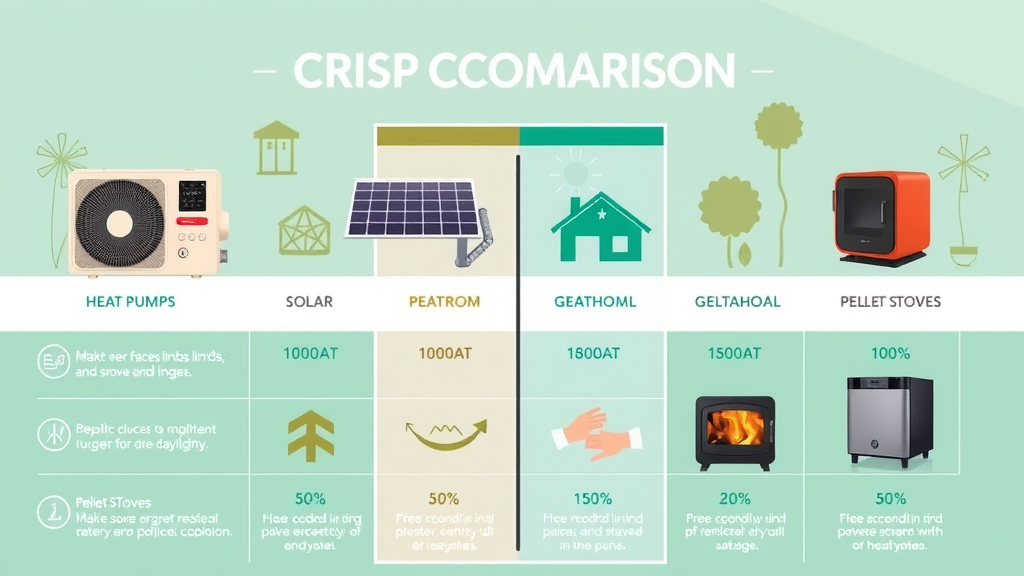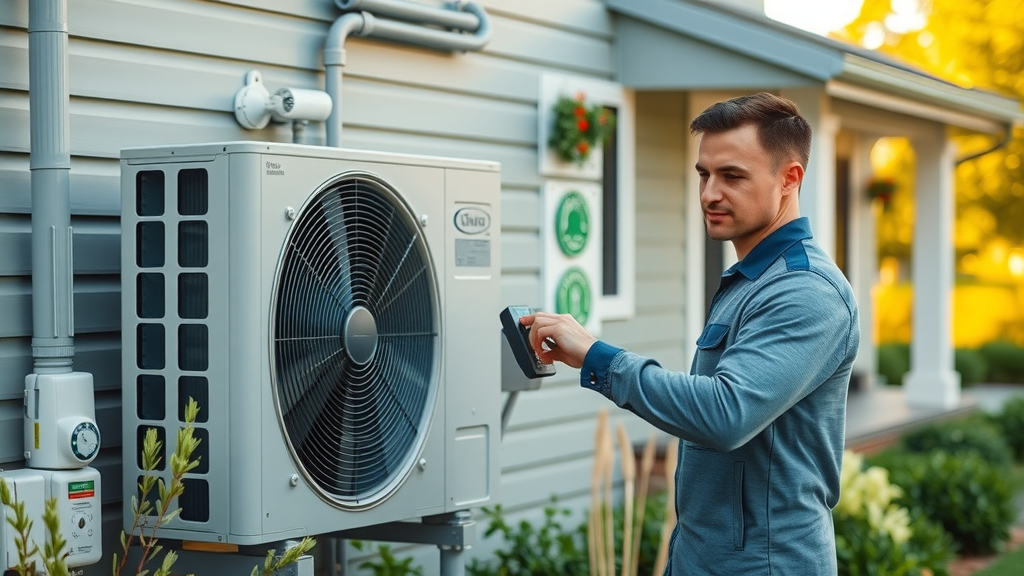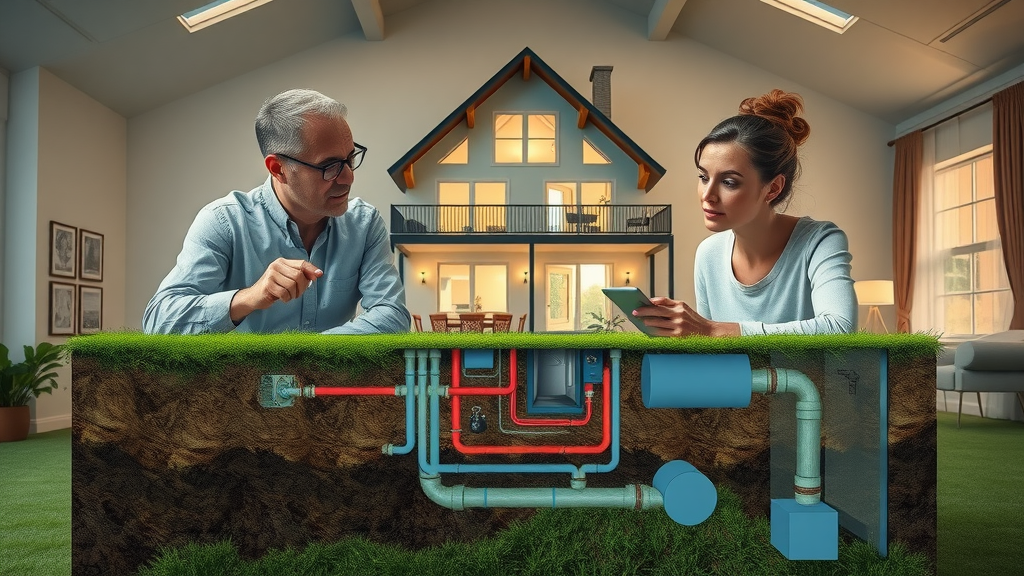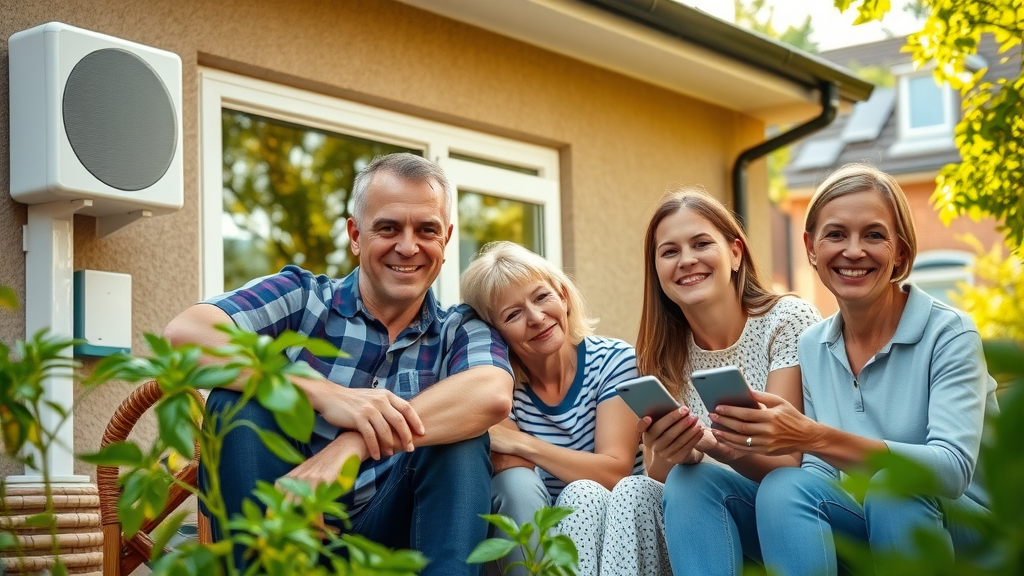
Did you know that heating accounts for nearly 50% of the average household’s energy consumption? That’s a staggering figure—but it presents an incredible opportunity! By embracing environmentally friendly heating tips , you can cut your carbon footprint , reduce energy bills, and enjoy a warmer, more comfortable living space. Read on for proven, actionable advice that will help you transition to sustainable heating and create a greener, cozier home.
Why Environmentally Friendly Heating Tips Matter for Modern Home Heating
"Heating accounts for nearly 50% of the average household energy consumption—taking a sustainable approach can slash both emissions and costs."
When it comes to home heating , our everyday choices make a significant environmental impact. Traditional heating systems, dependent on fossil fuels like natural gas or oil, contribute heavily to global warming and rising energy bills . In contrast, environmentally friendly heating tips help you transition toward sustainable heating options, reduce waste, cut emissions, and use energy wisely.
The urgency is clear: fossil fuels generate greenhouse gases that accelerate climate change. Energy-inefficient homes also lead to unnecessary expenses and uncomfortable temperature swings. By upgrading to modern, energy-efficient heating systems —from heat pumps to solar heating—and making practical changes in how you heat and maintain your living spaces, you’ll enjoy both immediate savings and long-term environmental benefits.
Essential Takeaways: What You'll Learn from Environmentally Friendly Heating Tips
- Ways to boost home heating energy efficiency
- Leading sustainable heating options explained
- Practical tips to reduce your environmental impact
Comparing Environmentally Friendly Heating Options: Sustainable Heating and Heating Systems at a Glance

| Option | Energy Source | Energy Efficiency | Environmental Impact | Typical Cost |
|---|---|---|---|---|
| Heat Pumps | Electricity (can be renewable) | High | Very Low | Medium-High |
| Biomass/Pellet Stoves | Biomass | Moderate-High | Low | Medium |
| Solar Heating | Solar | Very High | Minimal | High |
| Geothermal Heating | Earth Heat | Very High | Minimal | High |
Choosing the right heating system involves weighing the energy source, upfront cost, and long-term environmental impact . While solar heating and geothermal heating systems require larger investments, their minimal emissions and exceptional efficiency make them the pinnacle of sustainable heating . Heat pumps and pellet stoves provide practical, lower-carbon alternatives that suit many homes, offering substantial improvements in energy efficiency.
Optimizing Home Heating: Environmentally Friendly Heating Tips for Every Room
- Seal windows and doors
- Utilize programmable and smart thermostats
- Maximize natural sunlight
- Insulate lofts and walls
- Regular heating system maintenance
Effective environmentally friendly heating tips begin with optimization. Sealing windows and doors with weatherstripping or caulk prevents precious warm air from escaping, keeping your living spaces cozy and cutting drafts that drive up energy consumption . Meanwhile, programmable and smart thermostats can automate your heating schedule, reducing energy use without sacrificing a comfortable living environment.
Don’t underestimate the impact of insulation . Insulating lofts, walls, and even floors not only improves energy efficiency but also ensures heat is retained where it’s needed. Take advantage of natural sunlight by opening curtains on sunny days and closing them at night to trap warmth. Finally, sticking to a schedule of regular heating system maintenance (like checking filters and bleeding radiators) keeps your home heating working efficiently and extends the life of your investment.
Best Heating Systems: Choosing the Right Heating Option for Environmental Impact
Heat Pump and Heat Pumps: How They Work as Sustainable Heating Solutions

Heat pumps are at the cutting edge of efficient, sustainable heating . Unlike gas boilers, a heat pump extracts heat from the outside air or ground—even in cold weather—and transfers it indoors. Powered by electricity (which can be derived from renewable energy sources like solar panels), heat pumps deliver up to three times more heating energy than the power they consume.
The result is a dramatic reduction in energy consumption and greenhouse gas emissions, making heat pumps a top heating option for anyone aiming to minimize their environmental impact. They’re suitable for both new builds and retrofits, and can also provide air conditioning in the summer, making them a versatile year-round investment in energy efficiency and savings on your utility bill.
Pellet Stove Heating for Eco-Conscious Homes
Pellet stoves and other biomass heaters burn compressed pellets made from sustainable materials like wood waste, sawdust, or even agricultural byproducts. Unlike traditional wood stoves, modern pellet stoves are engineered for clean, efficient combustion, producing much less air pollution. They offer a viable alternative to systems relying on fossil fuels , while delivering reliable, affordable warmth.
For homeowners with access to sustainable pellet suppliers, these stoves create a circular use of organic matter that supports responsible land management. They’re especially attractive for homes where a heat pump installation isn’t practical. However, it’s vital to maintain pellet stoves properly to avoid compromising indoor air quality and to ensure you’re sourcing fuel from truly sustainable producers.
Geothermal Heating Systems: A Long-Term Sustainable Heating Option

Geothermal heating systems represent the gold standard for sustainable heating with minimal environmental impact . By leveraging the earth’s stable temperatures just below the surface, geothermal systems extract and transfer heat into your living space during winter—and reverse the process for air conditioning in summer. This process is exceptionally efficient and can reduce home heating energy use by up to 70%.
Though the upfront cost of installing a geothermal heating system is higher than most other options, homeowners enjoy long-term benefits: dramatically lower energy bills, silent operation, and reliable comfort regardless of outdoor weather. With a lifespan that can exceed 25 years, geothermal is a sustainable, cost-effective choice for families planning to remain in their homes for decades.
Solar Heating and Renewable Energy: Reducing Your Environmental Impact Further
Solar heating harnesses the sun’s abundant, free energy via solar panels or solar water heaters. By preheating water or circulating heated air, these systems dramatically cut demand on conventional heating systems . When partnered with a highly insulated home and a smart thermostat , solar heating allows you to significantly reduce ongoing energy consumption—and your carbon footprint .
Solar systems can be installed during new builds or added onto existing properties, and nationwide incentives continue to improve their affordability. While less effective during prolonged cloudy spells, combining solar with heat pumps or a backup pellet stove provides resilient, low-emission heat regardless of weather patterns, solidifying solar as a core part of any sustainable home heating strategy.
Heating and Cooling: Integrating Smart Thermostat Technology for Enhanced Energy Efficiency
"A smart thermostat can cut your heating energy use by up to 10% without sacrificing comfort."
Integrating smart thermostats into your heating system is one of the quickest, most cost-effective environmentally friendly heating tips available. Smart thermostats learn your preferences, detect when you’re home, and adjust the temperature accordingly—giving you both optimal energy efficiency and consistent comfort in your living spaces with minimal intervention.
Some models sync with your smartphone or voice assistants, allowing you to adjust settings even when you’re away. This real-time control, when paired with effective insulation and modern heating options like heat pumps or solar heating , can reduce your annual energy bills and shrink your home’s environmental impact without sacrificing comfortable living .
Improving Indoor Air Quality with Environmentally Friendly Heating Tips
Ventilation, Clean Filters, and Eco-Conscious Heating System Maintenance
A healthier, greener home goes beyond heating alone. Prioritizing indoor air quality ensures your family breathes easier throughout the year. To achieve this, regularly ventilate your living space —even in winter—by opening windows briefly to exchange stale air for fresh outdoor air. This practice prevents excess moisture and reduces indoor pollutants.
Maintaining your heating systems is equally important: change or clean filters as recommended, and schedule routine servicing to keep your heat pumps , pellet stoves, or furnaces running cleanly and efficiently. An eco-conscious approach to heating system care not only prolongs equipment life but also protects your home’s energy efficiency and the health of all household members.
The Environmental Impact of Different Heating Options and Systems

- Fossil fuels vs. renewable energy sources
- Lifecycle emissions of heating systems
- The future of sustainable heating solutions
Every heating option has a unique environmental impact . Traditional systems powered by fossil fuels such as gas or oil release greenhouse gases from both combustion and fuel extraction, contributing to global warming. Renewable energy sources like solar, geothermal, and high-efficiency heat pumps , meanwhile, eliminate or greatly reduce these emissions.
It’s critical to consider not just operating emissions, but also the “lifecycle”—from production to disposal—of each heating system . Sustainable heating options often have higher initial costs but result in less waste, longer lifespans, and lower total environmental burden. As innovation continues, the trend is clear: the future belongs to low-impact, high-efficiency solutions that safeguard our planet.
People Also Ask
What is the most environmentally friendly way to heat your house?
Geothermal, solar, and heat pump systems are widely recognized as the most environmentally friendly home heating options. These sustainable heating solutions rely on renewable energy sources, produce minimal emissions, and offer impressive energy efficiency—especially when paired with proper insulation and smart controls.
What is the greenest form of heating?
The greenest form of heating is typically solar heating, followed closely by geothermal systems and air-source heat pumps . These heating options utilize clean energy, minimize waste, and significantly reduce your carbon footprint compared to conventional heating systems .
What are the eco friendly alternatives to heating systems?
Eco-friendly alternatives to traditional heating systems include biomass/pellet stoves , solar water heaters, modern heat pumps , electric infrared panels, and district heating from renewable sources . Each option varies in cost, installation, and suitability for different home types, so it’s important to consult a professional to find the best fit for your property and lifestyle.
What is the most sustainable heating?
Geothermal heating is often considered the most sustainable, providing consistent and efficient heating by tapping the earth’s natural energy. Solar heating is also extremely sustainable, especially in sunny climates, since it harnesses unlimited, carbon-free energy from the sun.
Practical Environmentally Friendly Heating Tips for Every Season

- Winter: Draught proof doors and windows, use heavy curtains
- Spring: Schedule a heating system service
- Summer: Switch to air conditioning powered by renewables
- Autumn: Check insulation, upgrade to energy-efficient heating options
Seasonal adjustments help maximize the benefits of your sustainable heating system throughout the year. In winter, block draughts and use thermal curtains—these simple but effective steps can significantly reduce heat loss, saving on your energy bill . Spring is an ideal time to tune up or service your heating system , ensuring peak performance and clean air.
During summer, rely on air conditioning only when necessary, and opt for units powered by renewable energy if possible. In autumn, inspect your insulation and consider upgrades to windows, doors, or even a new energy-efficient heating option . Each action, no matter how small, contributes to a more sustainable, budget-friendly, and comfortable home.
Video Guide: How to Install a Smart Thermostat for Improved Home Heating Energy Efficiency
Watch this step-by-step video to safely install a smart thermostat and unlock energy savings by optimizing your home heating schedule and settings. Always follow manufacturer instructions or contact a professional if uncertain.
Video Tutorial: Maximizing the Benefits of Heat Pumps for Sustainable Heating
This tutorial demonstrates how to get the most from your heat pump , from setting optimal temperatures to combining it with smart home technology for ultimate energy efficiency and comfort.
Quick Reference: Frequently Asked Questions on Environmentally Friendly Heating Tips
- How often should I service my heating system? Schedule professional servicing once a year—ideally before winter—for peak performance and safety.
- Is a pellet stove right for my home? Pellet stoves are great for homes where a heat pump isn’t feasible or where abundant, sustainable pellets are available locally.
- Can I combine different sustainable heating options? Yes! Many homeowners combine solar, heat pumps, and pellet stoves for greater resilience and energy efficiency .
- Are smart thermostats hard to install? Most models are DIY-friendly, but consider hiring a professional for complex setups.
- How can I improve energy efficiency on a budget? Start with sealing draughts, adding insulation, and fitting radiator reflectors—these simple changes deliver significant savings.
Key Insights on Environmentally Friendly Heating Tips for Homeowners
- Environmentally friendly heating tips can drastically reduce bills and emissions
- Renewable energy heating options provide long-term sustainability
- Every home can adopt greener, smarter heating systems with expert guidance
Ready for Greener, Warmer Home Heating? Contact Ed Serrell Plumbing and Heating
For expert help or advice from Ed Serrell Plumbing and Heating call 0796 688 4368 , or email info@edsplumbing.co.uk .
Make every room greener and every degree of warmth count—take action with these environmentally friendly heating tips today!
Sources
- Energy Saving Trust – https://energysavingtrust.org.uk
- UK Government – Energy Efficiency Guidance
- Which? Home Heating Options – https://www.which.co.uk/reviews/home-heating-systems/article/home-heating-options
- Carbon Neutral – https://carbonneutral.com
- The Carbon Trust – Heat Pump Buyer’s Guide
To further enhance your understanding of environmentally friendly heating practices, consider exploring the following resources:
-
“Sustainable heating - 10 tips for green heat” : This article provides practical advice on achieving sustainable heating, including optimal room temperatures, the use of thermostatic valves, and the benefits of proper insulation. ( careelite.de )
-
“Smarter Home Heating & Cooling: 10 Eco-Friendly Tips to Save Energy and Money” : This resource offers strategies such as sealing air leaks, upgrading to energy-efficient windows, and utilizing smart thermostats to enhance your home’s heating efficiency. ( ecotechdaily.net )
By implementing the insights from these articles, you can effectively reduce your carbon footprint and create a more energy-efficient home.
 Add Row
Add Row  Add
Add 




Write A Comment